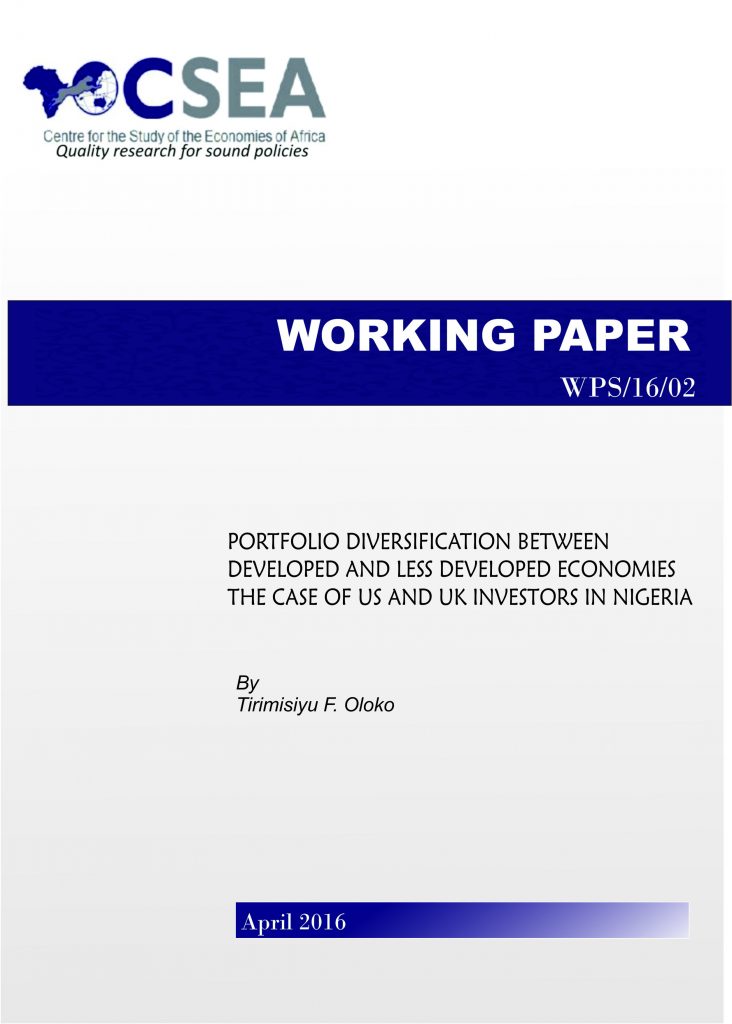Publications

July 28, 2016
Portfolio Diversification Between Developed And Less Developed Economies
This study
examines the hedging effectiveness of portfolio investment diversification
between developed and developing economies; with focus on the Nigerian stock
asset vis–vis the stock assets of the United States (US) and United Kingdom
(UK). Its main contribution is in the analysis of optimal portfolio
diversification using optimal portfolio weight (OPW) and optimal hedging ratio
(OHR). Empirical findings show that the OPW and OHR are low, which indicates impressive
potential gains from combining Nigerian stock assets in an investment portfolio
with US and UK stock assets. In addition, exchange rate volatility is found to
pose stern limitation on the potential benefits of this portfolio
diversification arrangement. It is therefore recommended that the monetary
authority in Nigeria should pursue policies towards reducing exchange rate
volatility to the barest minimum. This will possibly attract more investors
from developed economies who might be willing to combine Nigerian stock in
their investment portfolio to minimize portfolio risk.
